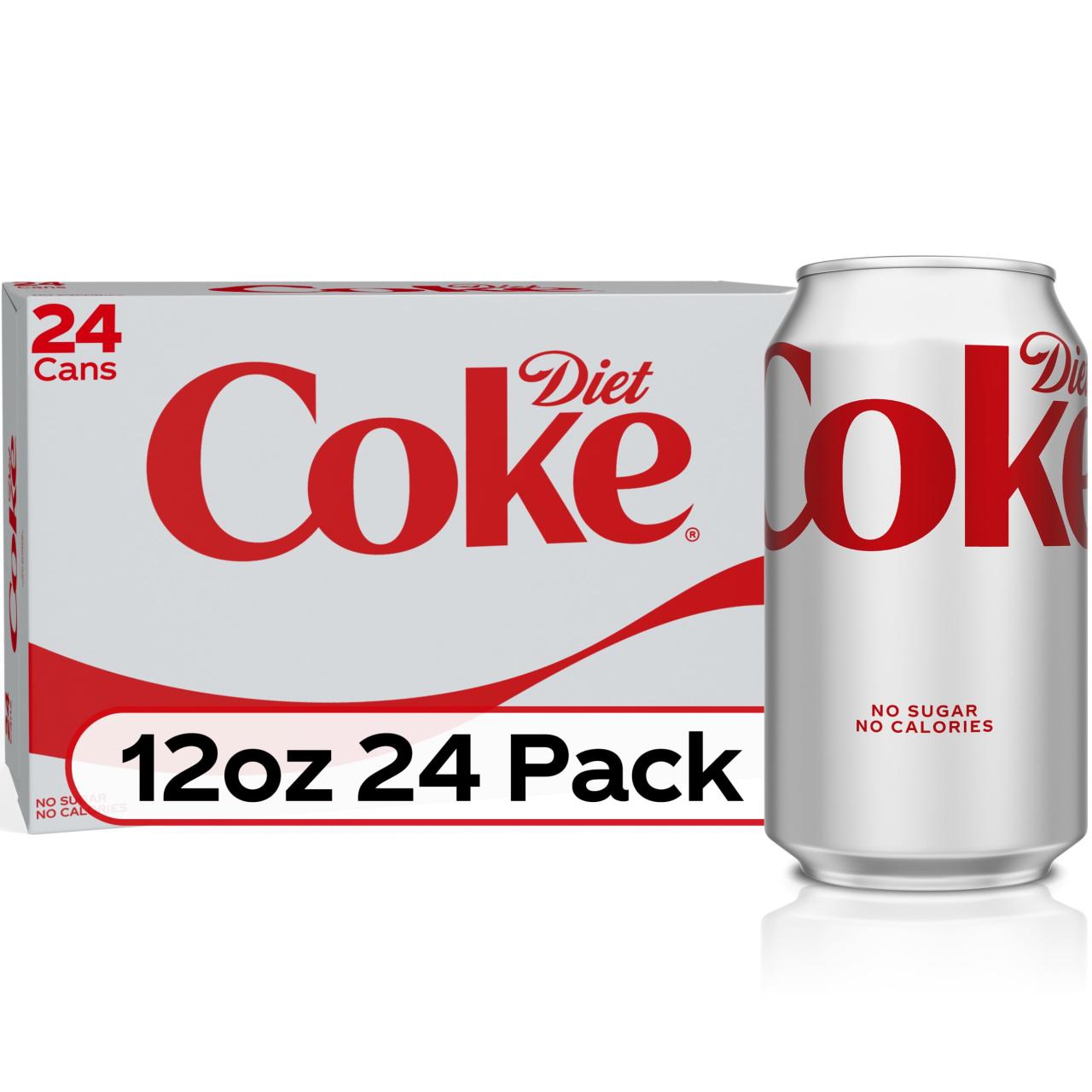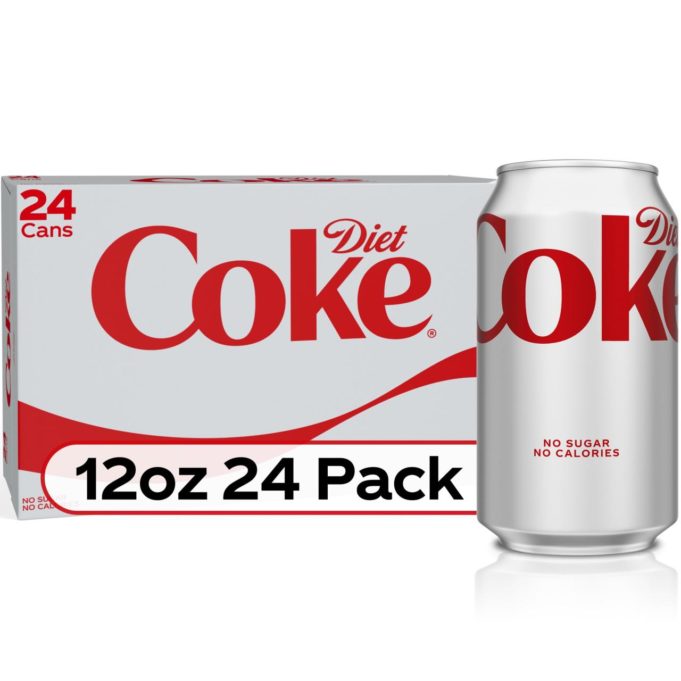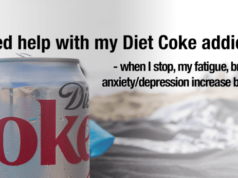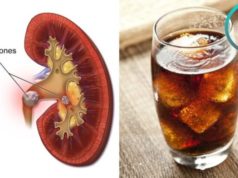Can Diet Coke still quench our thirst? This question, like a mischievous bubble rising from a freshly opened can, has sparked debate for decades. Diet Coke, with its promise of sweet satisfaction without the sugar, has become a cultural icon, a symbol of both modern life and its paradoxes.
But is it the refreshing savior we thought it was, or a deceptive mirage in the desert of our health-conscious desires?
From its humble beginnings as a sugar-free alternative to the classic Coke, Diet Coke has evolved into a global phenomenon, captivating millions with its unique blend of fizz and artificial sweetness. Its journey, however, is not without its bumps, as controversies swirl around the impact of artificial sweeteners on our bodies and the ever-present debate about its role in our pursuit of a healthy lifestyle.
Join us as we delve into the captivating world of Diet Coke, exploring its history, its ingredients, its impact on our health and consumer behavior, and its place in the ever-evolving landscape of our cultural consciousness.
Diet Coke
Diet Coke, the iconic sugar-free soda, has become a staple in many households and a symbol of the low-calorie beverage revolution. Its story, however, began in a time when the idea of a diet soda was still novel.
History of Diet Coke
Diet Coke was born in 1982, a response to the growing popularity of diet sodas and the increasing awareness of sugar consumption. Coca-Cola, the company behind the world-famous Coca-Cola, saw an opportunity to tap into this burgeoning market. Diet Coke was initially marketed as a “diet version” of Coca-Cola, appealing to those who wanted to enjoy the taste of the original without the calories.
It quickly gained popularity, becoming one of the best-selling diet sodas in the world.
Key Ingredients and Nutritional Information
Diet Coke, like its namesake, is primarily composed of carbonated water, caramel color, phosphoric acid, and natural flavors. However, unlike Coca-Cola, Diet Coke does not contain sugar. Instead, it uses artificial sweeteners, primarily aspartame, to achieve its sweet taste. A standard 12-ounce can of Diet Coke contains:
- Calories: 0
- Total Fat: 0g
- Sodium: 35mg
- Total Carbohydrates: 0g
- Sugars: 0g
- Protein: 0g
Marketing Strategies
Diet Coke’s marketing strategy has evolved over the years, but its core focus has always been on promoting its taste, low-calorie nature, and lifestyle appeal. Early campaigns emphasized the “diet” aspect, highlighting its ability to help people manage their weight.
Later campaigns shifted towards emphasizing its taste and associating it with fun, social activities, and a sense of self-confidence. Diet Coke has also collaborated with various celebrities and brands, further solidifying its position as a trendy and aspirational beverage.
Comparison with Other Diet Sodas
Diet Coke stands out in the crowded market of diet sodas due to its distinctive taste and marketing strategy. While other diet sodas like Diet Pepsi and Sprite Zero also offer a sugar-free alternative, Diet Coke has consistently maintained its position as a top contender, attracting a loyal following.
Its unique taste, which is often described as crisp and refreshing, has been a key factor in its success. Moreover, its marketing efforts, particularly its focus on lifestyle and image, have helped to differentiate it from its competitors.
Diet Coke and Health
Diet Coke, a popular sugar-free alternative to regular soda, has become a staple in many people’s lives. While it offers a sugar-free option, it’s essential to consider its potential health implications. Understanding the benefits and risks associated with Diet Coke can help individuals make informed choices about their beverage consumption.
Artificial Sweeteners and Human Health
Artificial sweeteners, the key ingredient in Diet Coke, have been the subject of much scientific debate regarding their impact on human health. Studies have investigated the potential effects of artificial sweeteners on weight management, gut health, and metabolic function.
- Some studies suggest that artificial sweeteners may not effectively promote weight loss and could even contribute to weight gain. The potential mechanisms for this include altered gut microbiota and increased cravings for sugary foods.
- Other studies have indicated that artificial sweeteners may disrupt the gut microbiome, which plays a crucial role in overall health and metabolism. This disruption could potentially lead to changes in nutrient absorption and immune function.
- Furthermore, research has explored the potential link between artificial sweeteners and metabolic disorders, such as type 2 diabetes. However, the evidence in this area is still inconclusive, and more research is needed to establish a definitive causal relationship.
Diet Coke and Obesity
While Diet Coke is sugar-free, its role in contributing to obesity is a complex issue. While it does not directly contribute to calorie intake, some studies suggest that consuming diet soda may be associated with increased risk of obesity.
- One theory suggests that artificial sweeteners may disrupt the body’s natural appetite regulation mechanisms, leading to increased calorie intake and weight gain.
- Another hypothesis posits that diet soda consumption may lead to a preference for sweet tastes, which could contribute to increased consumption of sugary foods and drinks.
- It’s important to note that the link between diet soda and obesity is not fully understood, and more research is needed to clarify the relationship.
Diet Coke and Chronic Diseases
The potential impact of Diet Coke on chronic diseases is a subject of ongoing research. Some studies have investigated the association between diet soda consumption and conditions like heart disease, stroke, and certain types of cancer.
- While some studies have found a correlation between diet soda consumption and increased risk of cardiovascular disease, the evidence is not conclusive, and further research is needed to establish a causal relationship.
- Research on the potential link between diet soda and cancer is also ongoing. Some studies have suggested that artificial sweeteners may be associated with an increased risk of certain types of cancer, but more evidence is required to confirm these findings.
Diet Coke vs. Regular Soda
Comparing the health implications of Diet Coke with regular soda is essential for making informed choices about beverage consumption. While Diet Coke is sugar-free, it contains artificial sweeteners, which have their own potential health risks. Regular soda, on the other hand, is high in sugar and calories, which are known to contribute to weight gain and other health problems.
- Regular soda consumption is linked to a higher risk of obesity, type 2 diabetes, heart disease, and other chronic diseases. The excess sugar and calories contribute to weight gain and can disrupt metabolic function.
- Diet Coke, while sugar-free, contains artificial sweeteners, which may have their own health implications. The potential risks associated with artificial sweeteners include altered gut microbiota, disrupted appetite regulation, and potential links to metabolic disorders.
Diet Coke and Consumer Behavior: Can Diet Coke

Diet Coke, with its iconic red can and crisp, refreshing taste, has carved a niche for itself in the beverage industry. Its appeal extends beyond its zero-calorie proposition, encompassing a complex interplay of consumer behavior, cultural influences, and marketing strategies.
This section delves into the fascinating world of Diet Coke consumption, exploring the motivations, cultural factors, and impact on consumer preferences.
Target Demographic and Motivations
The target demographic for Diet Coke is diverse, encompassing individuals seeking a sugar-free alternative to regular soda, health-conscious consumers, and those who simply enjoy the taste. The motivations behind consuming Diet Coke vary widely, but some common themes emerge.
- Weight Management:Diet Coke caters to individuals concerned about their weight or calorie intake. The absence of sugar makes it a guilt-free indulgence, allowing consumers to enjoy a fizzy beverage without compromising their dietary goals.
- Health Consciousness:Many consumers opt for Diet Coke as a healthier alternative to sugary drinks, aligning with a growing awareness of the health implications of excessive sugar consumption.
- Taste Preference:Some individuals simply prefer the taste of Diet Coke over regular soda. The crisp, refreshing flavor profile appeals to those seeking a less sweet, more invigorating beverage experience.
- Social and Cultural Factors:Diet Coke has become a cultural icon, associated with specific social groups and lifestyles. Its image as a sophisticated and modern beverage influences consumer choices.
Cultural and Social Factors
The consumption of Diet Coke is influenced by a myriad of cultural and social factors, shaping its perception and appeal within different demographics.
- Social Status and Image:Diet Coke has been associated with a certain social status and image, often perceived as a beverage for the sophisticated and health-conscious. This perception, cultivated through marketing and brand positioning, influences consumer choices, particularly among individuals seeking to project a particular image.
- Lifestyle and Trends:Diet Coke has become intertwined with specific lifestyles and trends. For example, it is often seen as a beverage for fitness enthusiasts or individuals leading a busy, on-the-go lifestyle. This association further reinforces its appeal within certain demographics.
- Marketing and Advertising:Diet Coke’s marketing campaigns have played a significant role in shaping consumer perceptions. From celebrity endorsements to humorous advertisements, the brand has successfully positioned itself as a desirable and relatable product, influencing consumer preferences and consumption patterns.
Role in Shaping Consumer Preferences
Diet Coke has played a pivotal role in shaping consumer preferences and trends in the beverage industry.
- Shifting Consumer Preferences:The introduction of Diet Coke marked a significant shift in consumer preferences, reflecting a growing awareness of health and calorie intake. It paved the way for the development of other diet beverages and helped shape the landscape of the beverage industry.
- Innovation and Product Development:The success of Diet Coke inspired other beverage companies to develop their own diet versions of popular drinks. This innovation has led to a wider range of options for consumers seeking healthier alternatives, further shaping consumer preferences.
- Marketing and Branding Strategies:Diet Coke’s marketing and branding strategies have set a benchmark for the industry. Its focus on humor, celebrity endorsements, and targeted advertising has been highly effective in reaching its target demographic and influencing consumer behavior.
Consumer Perceptions and Attitudes, Can diet coke
To understand consumer perceptions and attitudes towards Diet Coke, a survey can be designed to gather valuable insights.
Can Diet Coke really be a keto-friendly beverage? It’s a question that’s sparked debates hotter than a can of Diet Coke left in the sun. While it’s true that Diet Coke is sugar-free, the artificial sweeteners it contains can sometimes throw a wrench into the carefully calibrated macros of a keto diet.
So, if you’re on the keto train, it’s best to consult with a professional to see if Diet Coke is a good fit for your personal keto journey.
Survey Design:
- Demographics:Collect basic demographic information, such as age, gender, location, and income level.
- Consumption Habits:Ask about frequency of Diet Coke consumption, preferred occasions for drinking it, and reasons for choosing it over other beverages.
- Perceptions and Attitudes:Explore perceptions about Diet Coke’s taste, healthiness, and image. Gauge attitudes towards its branding, marketing campaigns, and association with specific lifestyles.
- Purchase Behavior:Inquire about factors influencing purchase decisions, such as price, availability, and promotions.
- Brand Loyalty:Assess the level of brand loyalty towards Diet Coke and explore reasons for choosing it over competing brands.
Diet Coke in the Media and Culture
Diet Coke has become more than just a beverage; it’s a cultural icon, a symbol of American pop culture, and a frequent guest star in movies, TV shows, and music. This section delves into the ways Diet Coke has been woven into the fabric of popular culture, exploring its portrayal in various media and the impact it has had on social media and online trends.
Diet Coke in Movies and TV Shows
Diet Coke’s appearance in movies and TV shows reflects its association with various lifestyles and archetypes. From its iconic placement in the hands of glamorous actresses in romantic comedies to its presence in the bustling scenes of high-energy action films, Diet Coke has become a visual shorthand for different aspects of contemporary life.
- Romantic Comedies:Diet Coke often appears in romantic comedies as a symbol of sophistication and a lighthearted, bubbly lifestyle. For example, in the movie “Pretty Woman” (1990), Julia Roberts’ character, Vivian Ward, enjoys a Diet Coke while getting ready for a glamorous evening.
- Action Films:Diet Coke is sometimes used in action films to portray a sense of urgency and high energy. For instance, in the “Fast and Furious” franchise, characters often grab a Diet Coke while preparing for a high-stakes heist or chase scene.
- Television Series:Diet Coke’s presence in popular TV shows can be traced back to the 1980s and 1990s, with appearances in shows like “Friends,” “Sex and the City,” and “The Sopranos.” These shows often feature Diet Coke as a casual beverage enjoyed by characters representing different walks of life.
Diet Coke in Music
Diet Coke has also made its way into the world of music, with numerous artists referencing the beverage in their lyrics. These references can range from playful and humorous to more serious and introspective.
- Hip-Hop and Rap:Diet Coke has become a recurring theme in hip-hop and rap music, often associated with luxury, indulgence, and a fast-paced lifestyle. Artists like Kanye West, Lil Wayne, and Drake have incorporated Diet Coke into their lyrics, reflecting its cultural significance within these genres.
- Pop Music:Pop music artists have also made references to Diet Coke in their songs, often using it as a symbol of youthfulness, energy, and carefree living. For example, the song “Diet Coke” by the band The Wombats is a playful and humorous track that celebrates the simple pleasures of enjoying a Diet Coke.
Controversies Surrounding Diet Coke
Despite its widespread popularity, Diet Coke has faced its share of controversies, particularly related to its marketing strategies and the potential health effects of artificial sweeteners.
- Marketing to Women:Diet Coke has been criticized for its marketing strategies that target women, often using sexually suggestive imagery and portraying the beverage as a way for women to achieve a certain body image.
- Artificial Sweeteners:The use of artificial sweeteners in Diet Coke has been a source of debate, with some studies suggesting potential health risks associated with their consumption. This has led to concerns about the long-term effects of consuming artificial sweeteners and the potential for them to contribute to health issues.
Diet Coke and Social Media
Diet Coke has embraced the power of social media to connect with consumers and create a sense of community. The brand has a strong presence on platforms like Twitter, Instagram, and Facebook, where it engages with fans, shares humorous content, and promotes new products.
- Social Media Campaigns:Diet Coke has launched numerous successful social media campaigns, often utilizing user-generated content and trending hashtags to generate buzz and increase engagement. For example, the #DietCokeBreak campaign encouraged consumers to share photos of themselves enjoying a Diet Coke during their breaks.
- Online Trends:Diet Coke has also been the subject of numerous online trends, often fueled by humorous memes and viral videos. These trends have helped to keep the brand relevant and generate a sense of shared experience among consumers.
Evolution of Diet Coke’s Branding and Advertising
Diet Coke’s branding and advertising campaigns have evolved significantly over the years, reflecting changes in consumer tastes and cultural trends.
Can diet coke really help you shed those pounds? Well, it might not be the magic potion you’re looking for, but it can be part of a healthy lifestyle. If you’re struggling with a slow metabolism and need an energy boost, check out this article on how to lose weight with a slow metabolism and boost energy.
Remember, diet coke is just one piece of the puzzle. It’s all about finding a balanced approach that works for you!
| Year | Campaign | Key Features |
|---|---|---|
| 1982 | “Diet Coke: Just for the Taste of It” | Focus on taste and refreshment, featuring sleek, modern imagery. |
| 1993 | “Diet Coke: It’s the Real Thing” | Emphasizes the authenticity and enjoyment of Diet Coke, featuring a more playful and lighthearted tone. |
| 2005 | “Diet Coke: The Perfect Escape” | Highlights the ability of Diet Coke to provide a moment of relaxation and indulgence, featuring a more sophisticated and aspirational aesthetic. |
| 2018 | “Diet Coke: Be Yourself” | Celebrates individuality and self-expression, featuring diverse cast of characters and a message of empowerment. |
Diet Coke: Future Prospects
The future of Diet Coke, like the diet soda market as a whole, is a fascinating blend of trends, challenges, and opportunities. While the once-dominant diet soda category has faced a decline in recent years, Diet Coke remains a recognizable and beloved brand with a chance to adapt and thrive in a changing landscape.
Can diet coke really help you lose weight? Well, it’s not a magic bullet, but it can be a part of a healthy plan. If you’re looking for a fast and healthy weight loss plan that fits your busy schedule, check out this Fast and healthy weight loss plan for busy people.
Just remember, even with diet coke, you still need to eat right and exercise. And maybe, just maybe, a little less sugar will help you shed those extra pounds.
The Future of Diet Soda
The diet soda market faces a number of challenges, including consumer concerns about artificial sweeteners, shifting preferences towards healthier beverages, and the rise of alternative options like sparkling water and unsweetened tea. However, there are also opportunities for growth, driven by factors like the increasing demand for low-calorie and sugar-free beverages, the development of new sweeteners and flavors, and the focus on personalized and functional beverages.
- Changing Consumer Preferences:Consumers are increasingly seeking healthier beverage options, with a growing preference for natural ingredients and reduced sugar content. This trend is likely to continue, presenting a challenge for diet sodas that rely heavily on artificial sweeteners. Diet Coke will need to adapt to these changing preferences by offering more natural options or highlighting the health benefits of its existing products.
- Innovation in Sweeteners:The development of new, more natural sweeteners could be a game-changer for the diet soda market. Companies like Coca-Cola are investing in research and development to find alternatives to artificial sweeteners, which could lead to a new generation of diet sodas that appeal to a wider range of consumers.
- Personalized and Functional Beverages:The rise of personalized and functional beverages, such as those with added vitamins, minerals, or probiotics, presents an opportunity for Diet Coke to expand its product portfolio. By incorporating these features into its existing products or developing new ones, Diet Coke can cater to the growing demand for beverages that offer specific health benefits.
Competitive Landscape
Diet Coke faces stiff competition from other diet sodas, as well as from a growing range of alternative beverages, including sparkling water, unsweetened tea, and even kombucha. To maintain its market share, Diet Coke needs to differentiate itself from its competitors and appeal to a wider range of consumers.
- Brand Differentiation:Diet Coke has a strong brand identity, but it needs to find ways to further differentiate itself from competitors. This could involve emphasizing its iconic taste, promoting its heritage as a classic beverage, or highlighting its association with pop culture and entertainment.
- Product Innovation:Diet Coke can maintain its competitive edge by introducing new flavors, packaging, and formats. This could include limited-edition flavors, seasonal offerings, or even collaborations with other brands.
- Marketing Strategies:Diet Coke needs to develop creative and effective marketing campaigns that resonate with its target audience. This could involve utilizing social media, influencer marketing, and experiential marketing to reach consumers and create a sense of engagement.
Potential New Product Innovations
Diet Coke has a long history of product innovation, and it can continue to explore new avenues for growth by developing new products and formats that meet the evolving needs of consumers.
- Natural Sweeteners:Diet Coke could introduce new versions of its iconic soda using natural sweeteners, such as stevia or monk fruit. This would appeal to consumers who are concerned about the health effects of artificial sweeteners.
- Functional Ingredients:Diet Coke could incorporate functional ingredients into its products, such as vitamins, minerals, or probiotics. This would allow it to tap into the growing demand for beverages that offer specific health benefits.
- Limited-Edition Flavors:Diet Coke could continue to release limited-edition flavors, which can generate excitement and attract new consumers. This could involve collaborations with other brands or the introduction of seasonal flavors.
Predictions for the Future of Diet Coke
Diet Coke is a brand with a rich history and a loyal following. By adapting to changing consumer preferences, embracing innovation, and leveraging its strong brand identity, Diet Coke has the potential to remain a relevant and successful brand in the years to come.
- Continued Growth in Emerging Markets:Diet Coke is likely to experience continued growth in emerging markets, where there is a growing demand for low-calorie and sugar-free beverages.
- Focus on Sustainability:Consumers are increasingly concerned about sustainability, and Diet Coke will need to demonstrate its commitment to environmentally friendly practices. This could involve using recycled packaging, reducing its carbon footprint, or promoting responsible sourcing.
- Digital Engagement:Diet Coke will need to continue to engage with consumers through digital channels, such as social media, mobile apps, and online platforms. This will allow it to build relationships with consumers, promote its products, and stay relevant in the digital age.
Closure
As we sip our Diet Coke, contemplating its role in our lives, one thing is clear: the debate surrounding this iconic beverage is far from over. While its future remains uncertain, one thing is certain: Diet Coke, with its captivating history and its place in our cultural tapestry, will continue to spark conversations and raise questions about our relationship with food, health, and the ever-evolving landscape of consumerism.
Clarifying Questions
Is Diet Coke really sugar-free?
While Diet Coke contains no sugar, it does contain artificial sweeteners like aspartame and acesulfame potassium, which are designed to provide a sweet taste without the calories.
Does Diet Coke cause cancer?
There is no conclusive scientific evidence to suggest that Diet Coke causes cancer. However, some studies have raised concerns about the potential long-term health effects of artificial sweeteners. It’s important to note that these studies are ongoing and more research is needed to fully understand the potential risks and benefits of artificial sweeteners.
Is Diet Coke bad for your teeth?
While Diet Coke does not contain sugar, it can still contribute to tooth erosion due to its acidity. Drinking it in moderation and brushing your teeth regularly can help minimize the risk of dental problems.
























